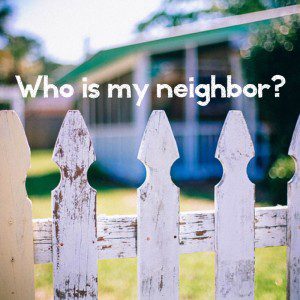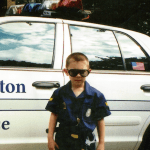 I was the guest preacher at a small church yesterday morning, invited to preach and lead a Q&A session on evangelism. I chose to stray from the lectionary because the story of Paul on Mars Hill in Athens (Acts 17:16-34) is the biblical story that most strongly anchors my understanding of what evangelism needs to look like in our current contexts. However, the tragic events of last week drew me back to the lectionary’s uncannily timely gospel reading, Jesus’ parable of the Good Samaritan in Luke 10:25-37.
I was the guest preacher at a small church yesterday morning, invited to preach and lead a Q&A session on evangelism. I chose to stray from the lectionary because the story of Paul on Mars Hill in Athens (Acts 17:16-34) is the biblical story that most strongly anchors my understanding of what evangelism needs to look like in our current contexts. However, the tragic events of last week drew me back to the lectionary’s uncannily timely gospel reading, Jesus’ parable of the Good Samaritan in Luke 10:25-37.
This familiar story begins with a legal scholar approaching Jesus and asking him to sum up the law. Jesus responds with what we call the dual love command: love God with your entire being and love your neighbor as yourself. This is as clear and concise an articulation of the way of Jesus as we have in the New Testament. Love God and love your neighbor. It’s all that simple, and it’s all that hard.
Jesus’ response prompts the legal scholar to pose the question, “And who is my neighbor?”
Who is my neighbor? Isn’t that the question our nation is struggling with these days? Who is my neighbor? Who is God calling me to love? Who is God calling me to serve? Whose lives matter?
In the parable Jesus tells to answer this question, a Jewish man is robbed and left for dead on the side of the road. His own religious leaders passed him by and didn’t help. Only a Samaritan stopped to help, even though Jews and Samaritans hated each other. They shared a common history, but lived deeply divided from each other. For Jesus’ Jewish audience, it would have been shocking that a Samaritan, of all people, ended up being the hero, the one who showed mercy to a stranger in need.
Who is my neighbor?
Before I came to Virginia I served for nine years as the youth minister in a predominantly white congregation in downtown Chicago. Every time a young black person was killed in the (mostly South Side) streets of our city, I struggled to get my mostly white North Side youth to fully empathize. Sure, they recognized that the gang violence of Chicago was tragic and sad. Yet even though these killings happened in their own city, it was far removed from the lives of privilege they lived in very different neighborhoods. I struggled to get them to feel in their core that these young black victims were part of their wider community.
Who is my neighbor?
A month ago, in the wake of the mass shooting at a gay night club in Orlando, I addressed my Presbytery assembly here in Central Virginia and suggested that what happened on that Sunday helps us understand why evangelism matters. (You can read a version of this address here.) A month later, we can replace Orlando with Baton Rouge, Falcon Heights, and Dallas and my message remains the same.
I don’t think progressive Christians always have a good sense or clear articulation of why the gospel matters. For some Christians, it is crystal clear what is at stake in sharing the gospel: if people don’t come to faith in Jesus Christ they will suffer for all eternity in the fires of hell. If you really believe that, you have a lot of motivation to share the gospel. But I suspect that many of us don’t take this approach, or at least don’t frame it so starkly. We tend to lead with grace instead of fear. But I’ll be blunt: it’s rarely clear to me what, if anything, is at stake in progressive understandings of the gospel.
Lat week’s killings in Baton Rouge, Falcon Heights, and Dallas are why the gospel matters. It’s why evangelism—not just living the gospel but also talking about it—matters.
What happened last week is a stark reminder of what’s at stake in our world. And it’s a stark reminder that we need better answers to the question, “Who is my neighbor?”












